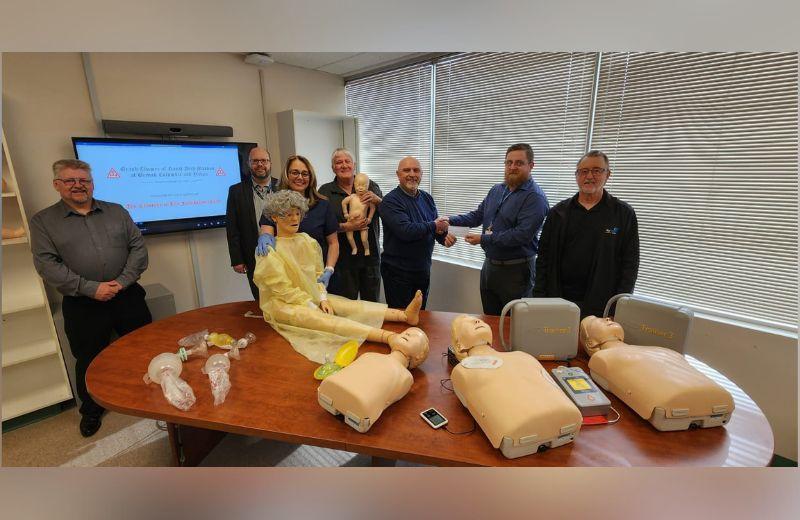The Keystone of Life Foundation, a charitable foundation connected with the Freemasons, recently donated $10,000 to Northern Health’s Education Department. The Foundation supports hospitals in rural areas, and since 1973, it has awarded more than $500,000 to hospitals in BC and the Yukon.

This generous donation was used to buy CPR training simulators for our staff in Northwest communities. Simulators are life-sized anatomically correct mannequins that resemble human patients at different ages. They provide a hands-on, fully interactive way for NH staff and others to safely practice providing patient care.
David (Davey) Maclennan, NH Regional Manager, Clinical Education, accepted this much appreciated donation on behalf of Northern Health. I chatted with him recently to get his perspective – see our conversation below.
What’s your relationship with the donor organization? How was this connection made?
Several Northern Health staff are Freemasons, so they were able to connect with Keystone of Life. This donation helps support Keystone’s goal of supporting safer health care, which of course matches NH’s goals too, so it benefited both organizations.
How much was the donation for, exactly? What specifically was the money used for?
The donation was for $9,916.12. NH used it to buy four “ sets with two defibrillator trainers, as well as a GERi Complete Nursing Skills Mannequin.The “Little Family” set of mannequins includes one simulator that looks like an adult, one child, and one baby. The feedback these simulators provide helps make learning how to do CPR more engaging and effective.
The GERi Complete Nursing Skills mannequin looks like an older person. It can be used to train health care staff on a number of health care scenarios involving seniors, such as suctioning the airway, positioning a patient, inserting a catheter, and more.

What impact will this donation have on Northwest communities?
These new sets of CPR mannequins will make it easier for health care educators to deliver essential education to hospital staff in the Northwest. They will also benefit long-term care facilities and staff working out of local health units in Atlin, Haida Gwaii, Hazelton, Houston, Kitimat, Prince Rupert, Smithers, and Terrace.
As well, the Geri Complete Nursing Skills mannequin will support the education of care aides and nurses who work with our elder populations in all the communities I listed.
What’s something you wish everyone knew about clinical education in Northern Health?
Clinical education supports all clinical staff, including nurses, physicians, and allied health professionals, to provide the highest level of care for the patients and families we serve.
Aside from essential education, orientation, and specialty education, we also support day-to-day educational needs across 22 areas of care, including emergency/critical care, operating rooms and recovery, maternity, neonatal, pediatrics, and primary care.














Comments